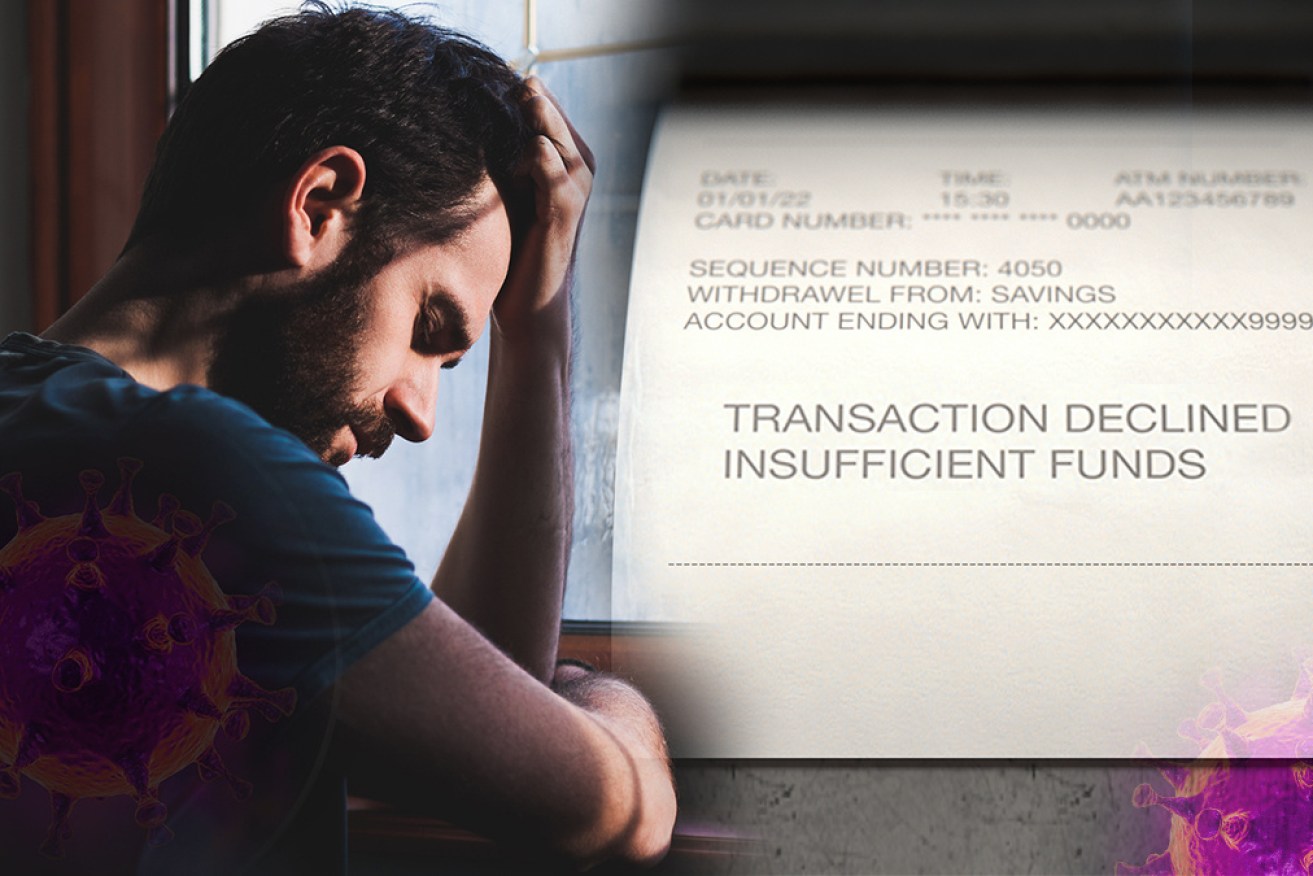‘Wouldn’t be able to pay rent’: How coronavirus hurts casual workers


Casual workers who are asked to self-isolate face a choice between getting paid and infecting others. Photo: The New Daily
Leah would be “pretty screwed” if coronavirus forced her to self-isolate for two weeks.
The Melbourne-based 33-year-old is one of more than three million workers in Australia who doesn’t get paid when they’re sick.
For the past five years, Leah has worked for art and gift shop Monsterthreads in the Victorian capital.
Although she manages the business’s two CBD storefronts and one soon-to-close pop-up shop, Leah is employed on a casual basis as she also studies at university.
She told The New Daily she simply couldn’t afford to self-isolate for two full weeks.

Leah, 33, worries coronavirus could leave her unable to pay rent.
“For me personally, I’d be pretty screwed,” she said.
“I’ve cut my hours back to get to uni, I’m barely scraping by as it is.
“I for sure wouldn’t be able to pay my rent – I have zero dollars in my savings and a lot of debt.”
She’s not alone.
Leah said most of her co-workers are in a similar position.
Under normal retail conditions, Leah said her Sydney-based employers would likely try to support their staff through a two-week isolation.
But, with at least two of the business’ nine locations relying heavily on Chinese tourism, the current travel ban might tie their hands.
“At a different point in time, I think they would try to help me out. But at this point I don’t think they would,” Leah said.
As a result, Leah would be forced to choose between working while sick, or missing rent and other vital payments if she came into contact with the virus.
Leah said she would not risk coming in and infecting her colleagues and friends, but cautioned the pressure to make ends meet could drive others to take that chance.
“I wouldn’t be that surprised if other people came in,” she said.
I can totally understand why people would feel like they had to that.’’
Growing calls for reform
Casual workers make up a quarter of the Australian workforce.
Women are more likely to work on a casual basis, with 27 per cent of the female labour force under this type of arrangement as of 2016 compared with 23 per cent of men.
In response to the coronavirus crisis, the Australian Council of Trade Unions has advocated for sick leave provisions to be extended to these workers.
ACTU secretary Sally McManus said reassuring workers there won’t be a financial penalty for them or their families if they self-isolate is vital to preserving the nation’s health.
“If working people are forced to choose between going to work sick or being able to pay their bills and feed their families then we are creating a disaster scenario for public health,” she said.
“We need the government to step in and ensure that employers are able to fund proper leave for workers who have to self-isolate due to public health concerns.”
Tweet from @sallymcmanus
But Attorney-General and minister for industrial relations Christian Porter said the lack of paid sick leave for casual workers is only “one dimension” of a greater challenge facing business in general.
“I don’t think that that dimension sits in front or behind any other parts of the problem,” he said.
“We are in the stages now where we’re getting a much better picture of the sort of challenges that we will likely encounter and we would be responding to each of those in turn.
“And I think that what needs to be understood is responses will be scale-able.
“This is not the time for people to come in and back pocket-out things that they’ve always wanted to see and ask for them under the banner of a health response.”
Labor minister and manager for opposition business Tony Burke said Mr Porter’s comments were “out of touch with the reality of casual and gig work”.
“If casuals aren’t given support through this crisis we run the very real risk they will turn up to work when they’re sick because they simply cannot afford to stay home and lose their pay,” he said.
“This isn’t just about supporting Australia’s 3.3 million casuals – it’s about containing the spread of coronavirus.
“The government must address this issue with its stimulus package on Thursday.”








